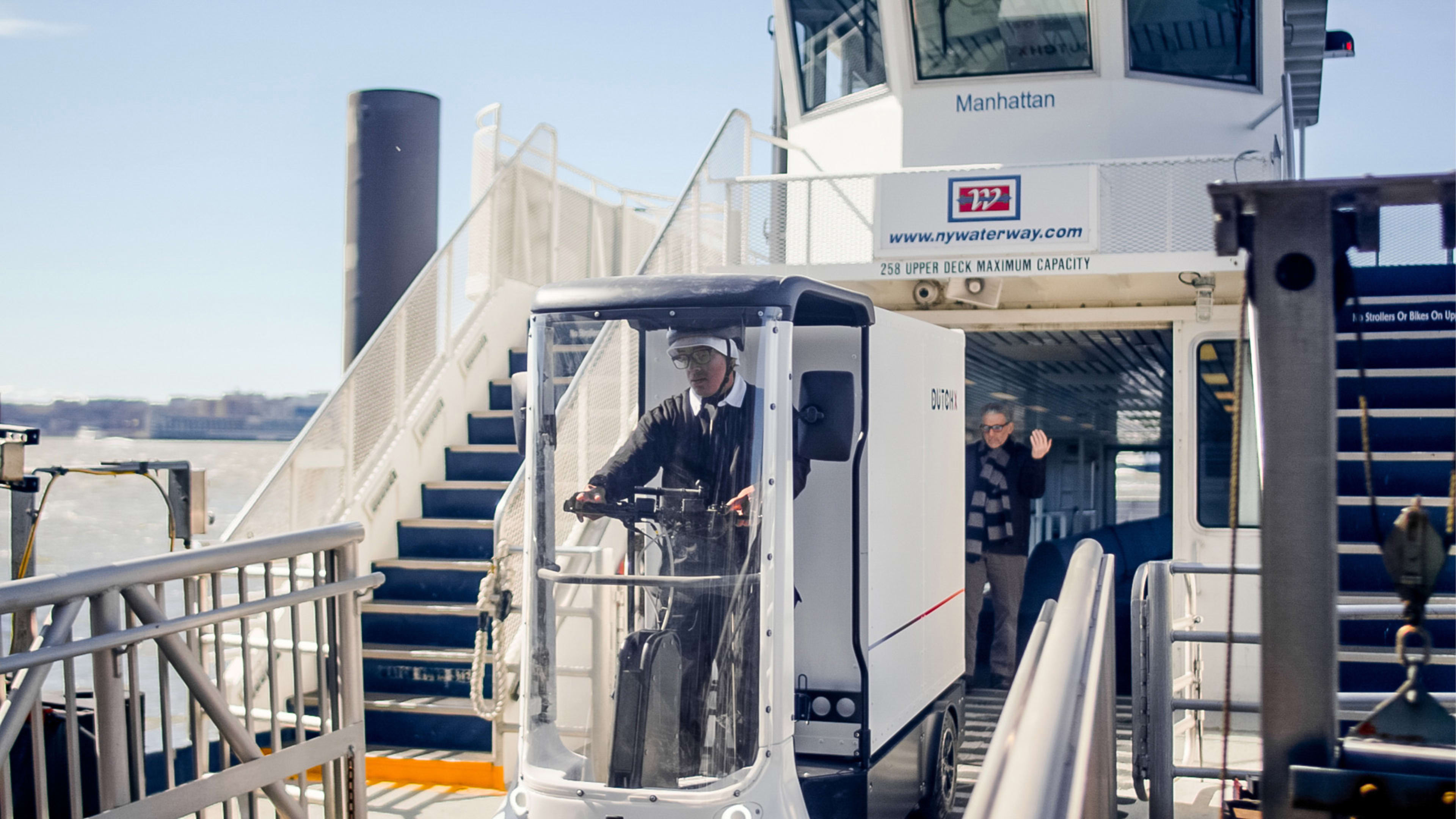To shrink the emissions from delivering packages and groceries in New York City for customers like Amazon Fresh, a company called DutchX uses around 250 electric bikes. But it still uses trucks to get cargo into the city. Now it’s testing an alternative: ferries traveling on the Hudson River.
In a new pilot launching this month, the company will start using a ferry to bring shipments from a New Jersey warehouse across the river to Midtown Manhattan. Boxes will be packed inside mini shipping containers designed to fit behind four-wheeled electric bikes or “eQuads,” made by a company called Fernhay; they look like tiny delivery trucks, but fit inside bike lanes. On the other side of the river, DutchX’s bike couriers will pick up the containers and then make doorstop deliveries.
Buying new electric delivery trucks or vans is still fairly expensive, and DutchX realized that making use of waterways could be a more affordable way to become more sustainable. It can also be more efficient. One ferry can hold roughly the equivalent of four 26-foot-long trucks, while avoiding the traffic congestion that trucks would face. “Potentially, customers can get their products faster,” says DutchX cofounder Marcus Hoed.
The system can also save costs by avoiding tolls, including Manhattan’s new congestion pricing, with proposed fees of as much as $23 during peak hours that will go into effect next year.

New York City first launched a commercial cargo bike pilot in 2019, including DutchX. By 2022, electric cargo bikes (or trikes, or quads) had delivered around 5 million packages in the city, making 130,000 trips. That’s a tiny fraction of total deliveries, but the city wants to help it grow, both to reduce carbon emissions and to make more space on roads as an ever-growing number of delivery vans block traffic.
It only takes two cargo bikes to replace one box truck, according to the city, eliminating around 14 tons of emissions a year. The Department of Transportation now wants to permanently approve the type of wider, four-wheeled cargo bikes like what DutchX is using now. (There’s some controversy, however, about the fact that they take up nearly the full width of a bike lane and could make it harder for other cyclists to move around—though bigger delivery vans already regularly block bike lanes.)

The company thinks that connecting to ferries could be the next logical step. In the pilot, it will be testing the cost per package per delivery; the company hires employees, not gig workers, and has tight margins. It also will be studying what locations next to the Hudson River and East River could make sense as hubs. When it picks up packages for delivery, it could later expand to other riverfront warehouses and retail stores in New Jersey and Brooklyn.
While Manhattan’s density and waterways make it ideally suited for a system like this, Hoed argues that it can also work in other American cities. In Europe, it’s already a reality in cities like Amsterdam and Copenhagen, and in London, where DHL uses electric vans to bring packages to a riverboat on the Thames that travels into the city center and docks at a pier for last-mile delivery on cargo bikes.
Recognize your brand’s excellence by applying to this year’s Brands That Matter Awards before the final deadline, June 7.
Sign up for Brands That Matter notifications here.
